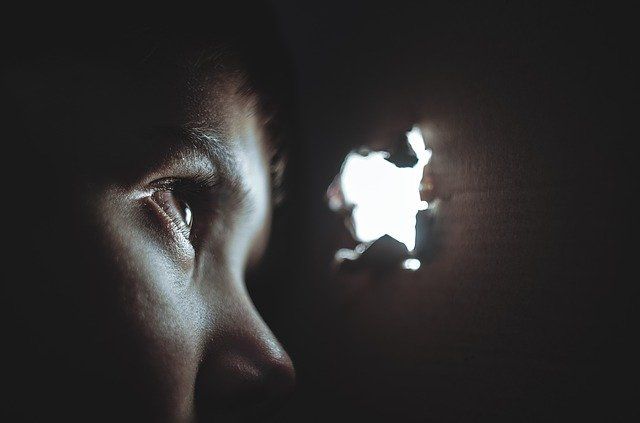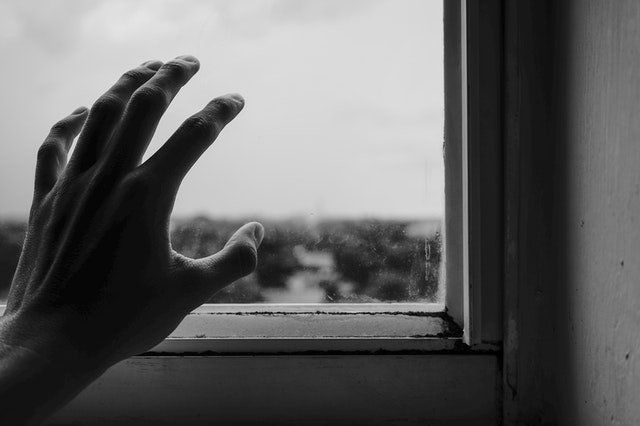Two OCD Symptoms No One Talks About (OCD Series: Chapter 2)
OCD is like a video game. At every level, you have to conquer the OCD symptoms before you can stop fearing them. The OCD symptoms will get scarier and harder to deal with the higher up you go in the game. That’s when other symptoms, the ones few people talk about, start to kick in. Learn what they are and how to handle them.
Why Managing OCD Symptoms is Like Playing a Video Game
In A Series of OCD Events: Chapter 1, we covered whether OCD symptoms mean anything. Do they mean you’re a terrible person? Do they mean something is about to happen? The short answer is: It doesn’t matter. You have to accept that you have scary, weird thoughts.
All of us have scary weird thoughts. Most of us can eventually let them go.
When someone has OCD, they can’t just blow them off. Instead, they get stuck. That’s when they start to descend into a strange world in which different thoughts and situations cause different levels of anxiety and fear.
OCD is like a video game. At every level, you have to conquer the challenge the OCD has set out for you. The thoughts at level 1 are going to be less scary than the thoughts at level 5.
That’s why Exposure Response Prevention (ERP), the gold standard of OCD treatment, tackles OCD symptoms starting with the easiest. As you get better at the new way of dealing with OCD, you can take on scarier and more difficult thoughts. Just like the video game, you can move on to the next level once you’ve mastered the easier level.
OCD symptoms that everyone talks about are obsessions and rituals. However, there are other symptoms people aren’t as quick to talk about. Usually, it’s because they think these symptoms mean they’re crazy and/or a terrible person.
Let’s start with a quick review of the well-known OCD symptoms before we move up to a harder level in this video game.

Well Known OCD Symptoms
The two OCD symptoms that get the most attention are obsessions and compulsions/rituals. In order to receive an OCD diagnosis, you need both symptoms. The anxiety they cause has to negatively impact every area of your life, every day.
Obsessions (sometimes called “spikes”) are unwanted scary thoughts that won’t go away. The reason they’re called “intrusive thoughts” is because it feels like this scary thought has broken into your brain and taken you hostage.
As soon as one obsession becomes less scary, it seems like another one pops up to replace it. The obsessions get scarier and scarier until the fear that they might be true becomes unbearable.
Compulsions, also called rituals, are behaviors you do to make the anxiety and fear from a thought go away. It’s like there’s a voice in your head saying, “if you just do this, you’ll be ok.” It’s like negotiating with a terrorist. The more you give, the more it demands from you.
It’s a no-win game because the OCD will always figure out a way to make the fear worse. When you’re that afraid, you’ll do anything to make the fear go away.
Compulsions can be seen and unseen. Some rituals people associate with OCD are checking, handwashing, or re-doing an activity. Those are seen compulsions. Unseen compulsions are thinking behaviors people do like praying, counting, or reviewing a thought over and over again.
There are two symptoms that have many unseen rituals to go with them. People are often scared and ashamed of these symptoms which is why they don’t talk about them.
Lesser Known OCD Symptom 1: Character Assassination
Character assassination is when the OCD attacks your feelings and who you are as a person.
The OCD starts its attack by producing scary thoughts that you’re a bad person or something bad will happen. With enough reassurance, confessing, and research, you’ll be able to rationalize your way out of most thoughts.
When you conquer an OCD fear and no longer care about it, the OCD has to figure out a way to scare you. OCD can only control you if you’re scared. That’s why it goes for character assasination with questions like:
- Are you really a good person?
- Do you really care about what you say matters to you?
- If a situation doesn’t make you sad, does that mean you don’t have empathy?
These questions are harder to prove. There are no definite answers to these questions. It also becomes harder to get reassurance that actually sticks. As a result, the OCD can make a million “what if?” questions that lead to more obsessions.
Character assassination hurts so much. It feels awful to not be able to prove with 100% certainty that you’re a decent person. A lot of the sadness that people with OCD feel is due to constant character assassination.
Lesser Known OCD Symptom 2: Bodily Sensations
The OCD high acks natural bodily processes and sensations to make you even more scared and miserable. For example, when we’re scared or anxious, it’s pretty common for your stomach to feel weird.
However, the OCD comes in and says, “if your stomach hurts, you must be scared you’re bad or something bad will happen. Your stomach issues are proof you’re bad. ”
If you don’t have the weird stomach feeling one time, the OCD says, “your stomach doesn’t hurt. That’s proof that you’re really a bad person because a good person would be nervous after having that thought.”
Groinal responses are also quite common. These are any sensations felt in the groin. These terrify people with OCD because we know what this sensation means. In our regular life, it means we’re sexually aroused.
The OCD takes a normal human response and uses it as proof that whatever you’re thinking about must be turning you on. Therefore, you’re a bad person or whatever else your OCD is saying you are.
Learning and trusting that the OCD can highjack your brain and produce any bodily sensation it wants takes time. The goal isn’t to make the sensation go away. It’s to not care if and when it shows up.
Imagine having a bad cold. You don’t like that it’s there, but you can’t magically make it go away. You have to use whatever strategies you have to make it better and get on with things until you fully bounce back. OCD bodily sensations work the same way.
When Do People Get Treatment for OCD?
I’ve been working with people struggling with OCD for almost 20 years. I’ve never gotten a call or email from someone saying, “the thought and feelings aren’t really scary, and the rituals only take a minute or two. It’s not getting in the way, but I figured it’s best to nip it in the bud.” Not one call like this. Ever.
People seek out treatment for OCD when two key things happen:
- They can’t tolerate the thoughts, feelings, and personal attacks anymore. They would rip out their brain if they could.
- The rituals no longer make the anxiety go away. At best, they provide a few minutes of relief. Then the obsessions start again.
Next Steps
Obsessions and rituals are the OCD symptoms that get the most press. However, character assassination and bodily responses are very common.
They’re hard to deal with because they’re so scary. How can you prove that a bodily sensation is wrong? How can you prove that lack of a bodily sensation has no meaning? How can you prove that you’re a good person?
The OCD loves this lack of 100% certainty. If there’s a loophole, the OCD will find and use it.
Exposure Response Prevention is the gold standard of OCD treatment and helps you address fears, rituals, feelings, and bodily sensations one level at a time.
When you beat the OCD at one level, you can then progress to the next. You’ll need to learn new skills and strategies, but you’ll already have experience playing the game.
Don’t try to conquer the game at level 10 right from the start. That’s a set up for failure.
When you’re ready to tackle your OCD and beat it at its own game, give us a call.
Before you go, make sure to check out Chapter 3: Why having someone else’s OCD wouldn’t make things easier.
Please contact us to set up an appointment.
We can help give you information, a map for next steps, and hope that you can have the life you want.
Wishing you the best,
Dr. Levy
Director
Dr. Ronit Levy is a clinical psychologist and director of Bucks County Anxiety Center in Newtown, PA. She specializes in treating teens and adults struggling with anxiety due to Anxiety Disorders, OCD, chronic illness, and life events. Dr. Levy trains and supervises other therapists and presents on mental health in the community.
Anxiety & OCD Blog Latest Posts
About Us
The therapists who practice at Bucks County Anxiety Center work with teens (ages 14 and up) and adults struggling with anxiety and OCD.
All Rights Reserved | Bucks County Anxiety Center








